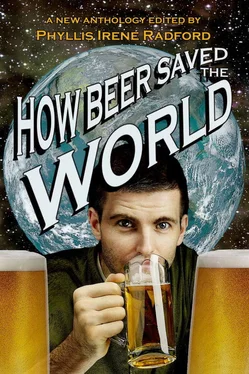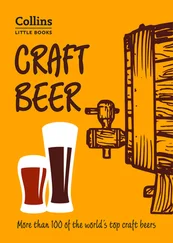(47) An idea likely inspired by accounts widely published at that time of the famous Trojan Horse, though it’s puzzling that they didn’t just adopt the Greeks’ tried and true approach without alteration—unless perhaps the construction of Mad Gus’s vat had left in its wake a village-wide lumber shortage.
(48) There is, in fact, a firmly established if rather brief list of items which goats won’t eat, including, but not limited to, bathroom cleanser, granite, jet fuel, haggis, marshmallow peeps, and any object larger than the goat which cannot be broken into smaller portions. Pretty much anything else though.
(49) This detail is indisputably apocryphal. Parsnips are delicious.
(50) Being new to the science of leadership, Gundar was clearly still unacquainted with standard diplomatic syntax used by seasoned leaders everywhere expressly to make even the simplest conversations complicated for the very prudent purpose of discouraging anything so reckless as decisive action.
(51) Lord Augustus is credited earlier with having a cannon, which one must imagine capable of delivering its lethal payload faster than any man could react, if not with nearly the silent stealth of a bow. However, it appears that Gus had allowed just one such weapon in his domain, and reserved access to himself alone.
(52) Further evidence of Lord Augustus’s penny-wise, pound-foolish approach to leadership.
(53) Unclear whether this refers to the villagers’ limp resistance to harassment, or their general digestive condition, as either one might be consistent with a regular diet consisting almost entirely of beer.
(54) Lord Augustus’s men were also regularly required to beat up villagers, burn down buildings, and kidnap women and children, of course. But given the hitherto general flaccidity of response denoted earlier, it seems likely that none of those activities had required much more in the way of muscular exertion than drinking and whoring normally do. Quite possibly less.
(55) An archaic colloquial term for ‘mean,’ or in some cases, ‘mean to mother.’
(56) Yet another variation of the German phrase for ‘Holy Cow’—more literally translated as, ‘My God in Heaven!’
(57) A common syndrome easily observable at smaller scale whenever adolescent children are left home alone for longer than a day by too-trusting parents.
(58) Where, happily, even minimal further research suggests they had little difficulty finding what they sought.
(59) Again, doubt is cast upon this assertion by some scholars who point to evidence such as one 4,000 year-old Sumerian stone tablet inscribed with the words ‘Drink Elba Beer, the beer with the heart of a lion.’ Then again, maybe Elba’s franchise had simply never branched out into Europe…
(60) This assertion is vigorously contested by most British scholars, though it must be noted that the oldest acknowledged functioning brewery in the world is 900 year-old Bayerische Staatsbrauerie Weihenstephan near Munich. Coincidence? We think not!
A Wartime Draught
G. David Nordley
I’m not going to describe where the White Horse is; one American finding the place, despite the jukebox the owners mistakenly placed in the public bar in hope of attracting them, was quite enough. He was an American military man who liked real ale. And, in retrospect, that was our first clue.
I was a bit late for getting a couple of pints in before closing, and trotting down to the Embankment from Fleet had left me a bit breathless. In spite of my haste, Mr. D. was getting a pint of Fuller’s London Pride ready for me by the time I’d gotten from the door to the Saloon bar.
He was standing there, in his American Army Major’s uniform, his long dirty-blond hair almost reaching his eyebrows, looking critically at what was likely a pint of Young’s stout.
“We don’t get Dunkel like this in Ulm,” he said.
A dozen eyes turned his way. There was a war on, of course. And he pronounced “Dunkel” as if it were spelled doon-kil.
“Oh. New Ulm, Minnesota. We sometimes drop the ‘new.’ I’m Wally, Wally Petersen.” He stuck out a beefy palm toward me as the most convenient British victim. “The place was settled by Germans, but I come from Minneapolis now. I’m an engineer. Valves, current, that kind of thing.”
Arthur’s head came up at the mention of valves. He and his brother Fred sat near the dartboard—but not too near, given that Harry was there and had a tendency to mix darts and draughts. Wally happened to be looking in Arthur’s direction, and his eyes narrowed at Arthur’s reaction. A couple of other heads turned and the chatter faded away.
We generally knew what Arthur was working on, and generally did not discuss it aloud, in public, ever. But high power amplification valves were an important part of it.
“Hydraulics, pumps, that kind of thing,” Wally said, as if he had to divert attention from electrical valves.
“You like the Young’s?” Mr. D. asked into the silence.
“Ah, it’s not quite Hamm’s,” he said, “but good, very good.”
That brought a quick smile from John Sims, our occasional Sunday Times astronomy columnist. John had actually been to Minnesota before the war.
“Greetings, Wally,” John said. “I know a man in Minneapolis. Bill Luyten, astronomer, science writer. Ever run into him?”
Wally pursed his lips and looked up as if trying to remember. “No, don’t recall the name. Is he involved in the war effort?”
A brief frown passed over John’s face. “Not that I know of. He’s more the academic type.”
Wally nodded and looked over to Arthur. “You’re interested in valves.”
Arthur smiled nervously. “Not that I’m free to discuss now, am I?”
Wally grinned. “Of course not. You barely know me. Barkeep…”
“Our barman is Mr. D,” John said.
“Yes, of course. Mr. D., I would like to purchase a round for the group. Are there any rules for that here?”
“There are tonight. It must be consumed in the next fifteen minutes. Then out the door. Closing time approaches.”
Nonetheless, pints were passed around, not the first such ritual as last orders approached.
I took the barstool next to Wally. “Arthur is into spaceships, you know.”
“Spaceships?” asked Wally.
Harry nodded. “Rockets, except with people inside of them.”
“That would hurt coming down.”
“Spaceships don’t come down. Or rather, they come down softly, on their tails, wherever you want them to. There are some engineering details to work out, of course, but the main thing is propulsion.”
Wally looked interested. “Could they come down in America, or Germany, for instance?”
“I think Arthur is more interested in the Moon. But yes, in Germany, if one wanted.”
Wally’s smile flicked off for an instant. “Very interesting,” he said. Then the smile was back on. “You betcha.”
<<>>
Mr. D turned the light off, then on again, as Wally waddled along the Embankment into the mist. After he was gone, we all re-entered, guarded by the “closed” sign. Should anyone have asked, we were the volunteer cleanup crew; many places depended on such with all the help off on the war effort.
“German,” Mr. D said. “Or I’ve not been doing this for thirty years.”
“He hasn’t been to Minnesota, I should think, John added. “Hamm’s, indeed. That gave him away.”
“I rather thought that was an American beer of that region,” Harry said.
John nodded. “Indeed. And nobody who likes real beer will drink it.”
“What’s he doing in an American uniform? All this talk about pumps and the like,” Harry asked. “We’re building the…”
Читать дальше











